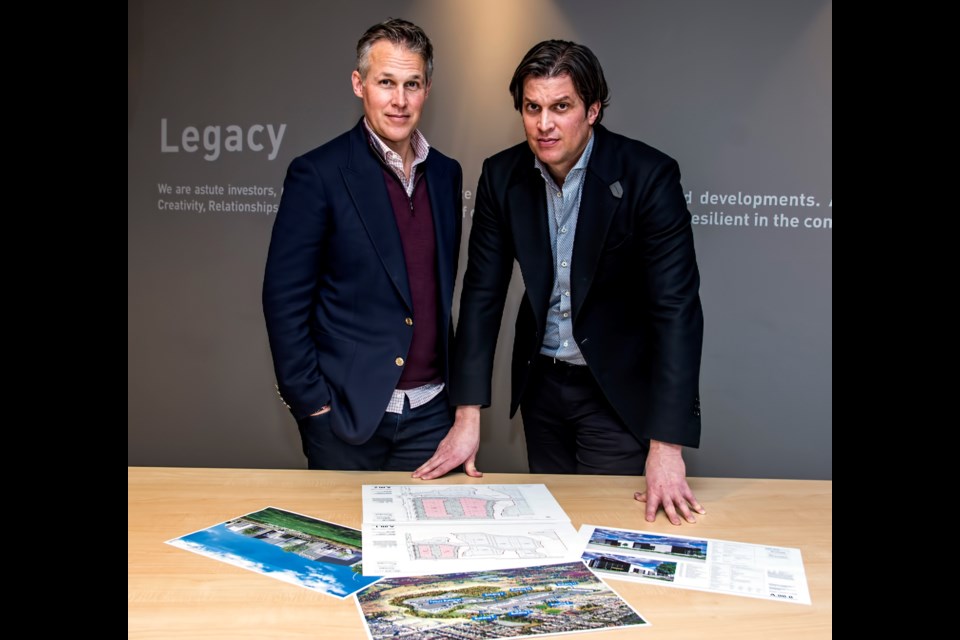The largest industrial development cycle in Canadian history is currently underway with a projected 46 million square feet of new supply expected to be delivered in 2023.
Yet, the market will still remain undersupplied relative to demand, according to CBRE’s recent 2023 Canada Real Estate Outlook, which expects the national industrial vacancy to rise just 40 basis points this year to 2 per cent.
The tight market is already driving leasing costs to unheard of levels, according to an industrial panel at the February RealCapital conference in Toronto.
Gord Cook, vice-chairman of Colliers, who moderated the panel, said industrial leases last year rose by 18 per cent in Vancouver, 31 per cent in Toronto, 41 per cent in Calgary and 74 per cent in Montreal.
Triovest chief investment officer Prakash David said his company just leased a 50,000-square-foot industrial building in Vancouver for $27 per square foot, with an annual 4 per cent rent escalations built in.
According to Colliers, average per square foot lease rates at the end of 2022 were, $21.10 in Vancouver, $18.05 in Victoria, $11.79 in Calgary and in the $10 to $11.50 range across the rest of Western Canada. Toronto was just over $17 per square foot.
Nation-leading lease rates, combined with the lowest vacancy rates in North America – Victoria at 0.1 per cent and Vancouver at 0.2 per cent – have created a cavernous opening for strata industrial in the two West Coast cities.
So far the boom is running under the radar.
Colliers didn’t mention industrial strata in its recent national snapshot report on the industry and it was virtually ignored at the RealCapital conference. But as lease hikes and low vacancies continue, strata could become a national movement, some suggest.
In Greater Victoria, 660,0000 square feet of industrial space is under construction, representing nearly all the new industrial underway in the region. These include the Pacific Ridge Business Centre and the Langford Heights Business Park, both expected to be completed over the next two years.
In Metro Vancouver, Hungerford Properties is leading the market in the delivery of speculative strata industrial, despite elevated cost for financing and construction.
“We are very bullish on industrial,” partner Michael Hungerford said of the family firm that includes Andrew and George Hungerford as partners.
While noting a cooling economy, Michael said industrial remains “a very, very tight market” that demands creativity and confidence.
Also active in Victoria and Kelowna, Hungerford is working on 1.7 million square feet of industrial space this year in Metro Vancouver alone, he said.
The largest is the giant Xchange Business Park on Mt. Lehman Road in Abbotsford, the largest and perhaps one of the last big industrial developments in the Lower Mainland, by Hungerford and QuadReal Property Group. The project will develop Class A industrial product with a total of 11 buildings across 78.5 acres.
Hungerford recently acquired a 3.83-acre brownfield site on Production Way, Langley, where it plans two multi-tenant light industrial buildings comprised of approximately 103,000 square feet of strata space.
More recently, the company purchased a three-acre industrial site at 8411 Lougheed Highway in Burnaby.
Hungerford’s portfolio will eventually include a planned two-tower office and industrial project near Vancouver’s Marine Gateway Skytrain Station that includes 40,000 square feet of light industrial, 28,600 square feet of storefront industrial and a 30,200 square foot industrial mezzanine. The project was approved February 17, 2023,by the City of Vancouver.
Despite the apparent allure of soaring lease costs and low vacancies, Michael Hungerford said most his company’s industrial strata is bought by those it was built for: local business owners and professionals. These owner-occupiers, he said, are looking to control their real estate costs and share in the asset appreciation that B.C. is famous for.
“Very few investors are buying industrial strata space,” he said.
That could change, however, as investors look for opportunities in the most active real estate development sector in the country.



